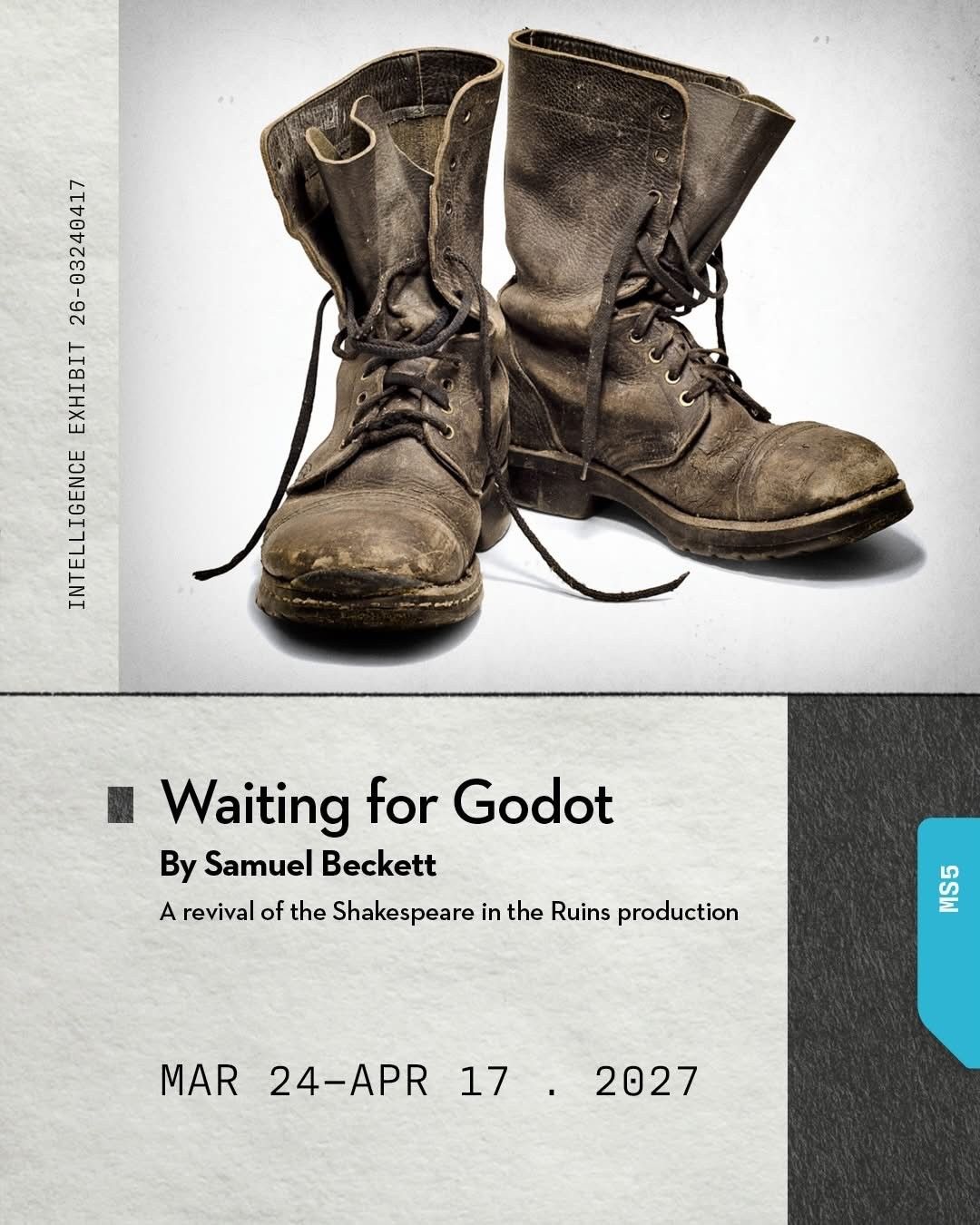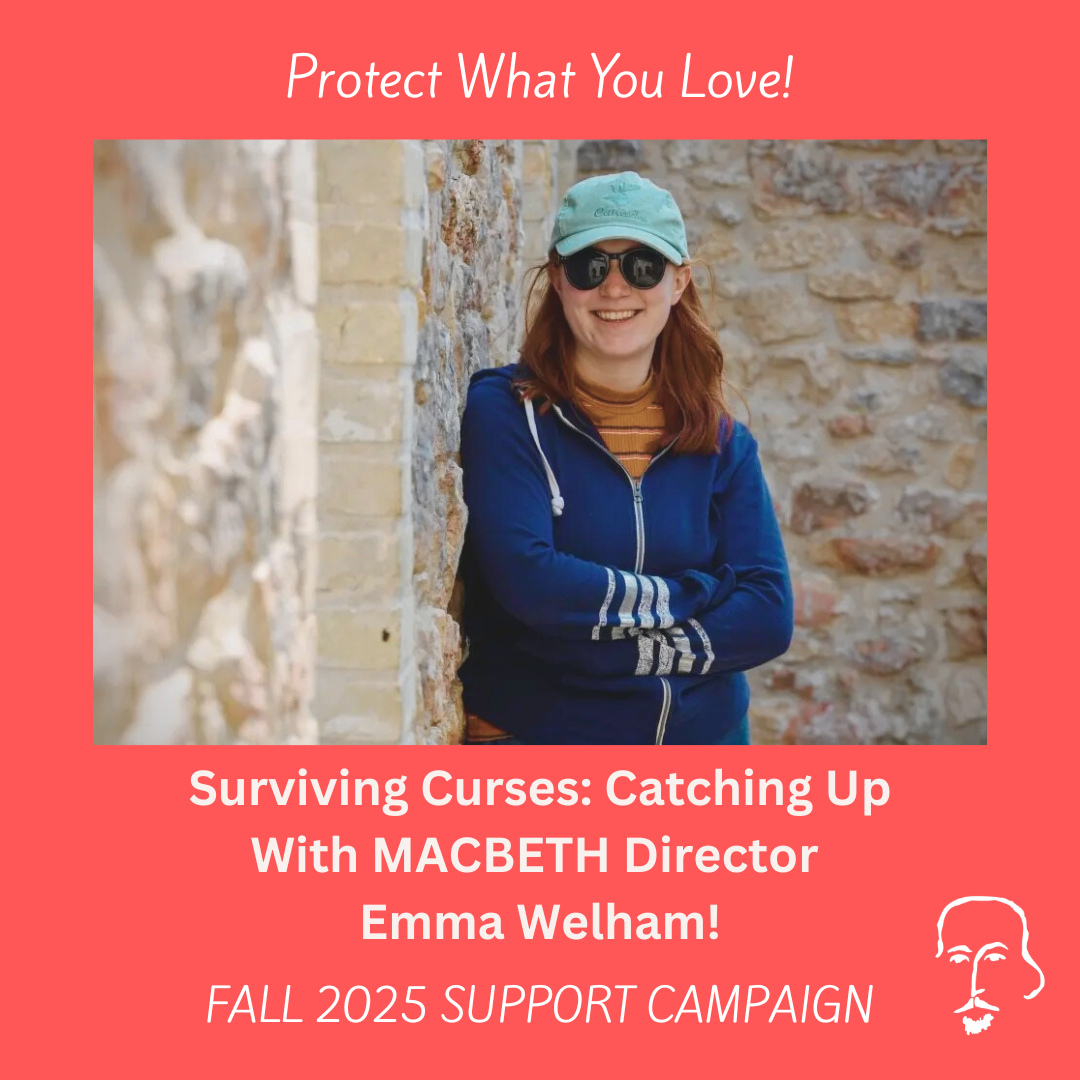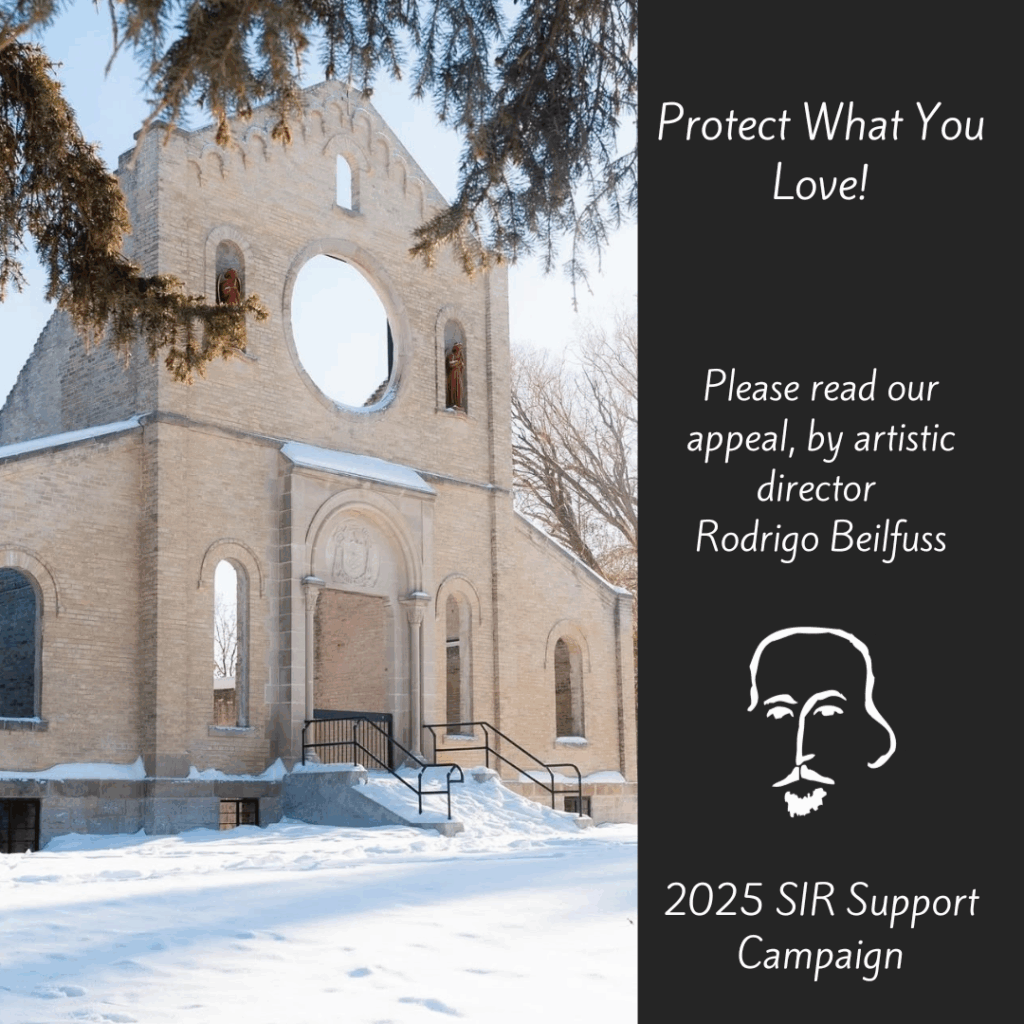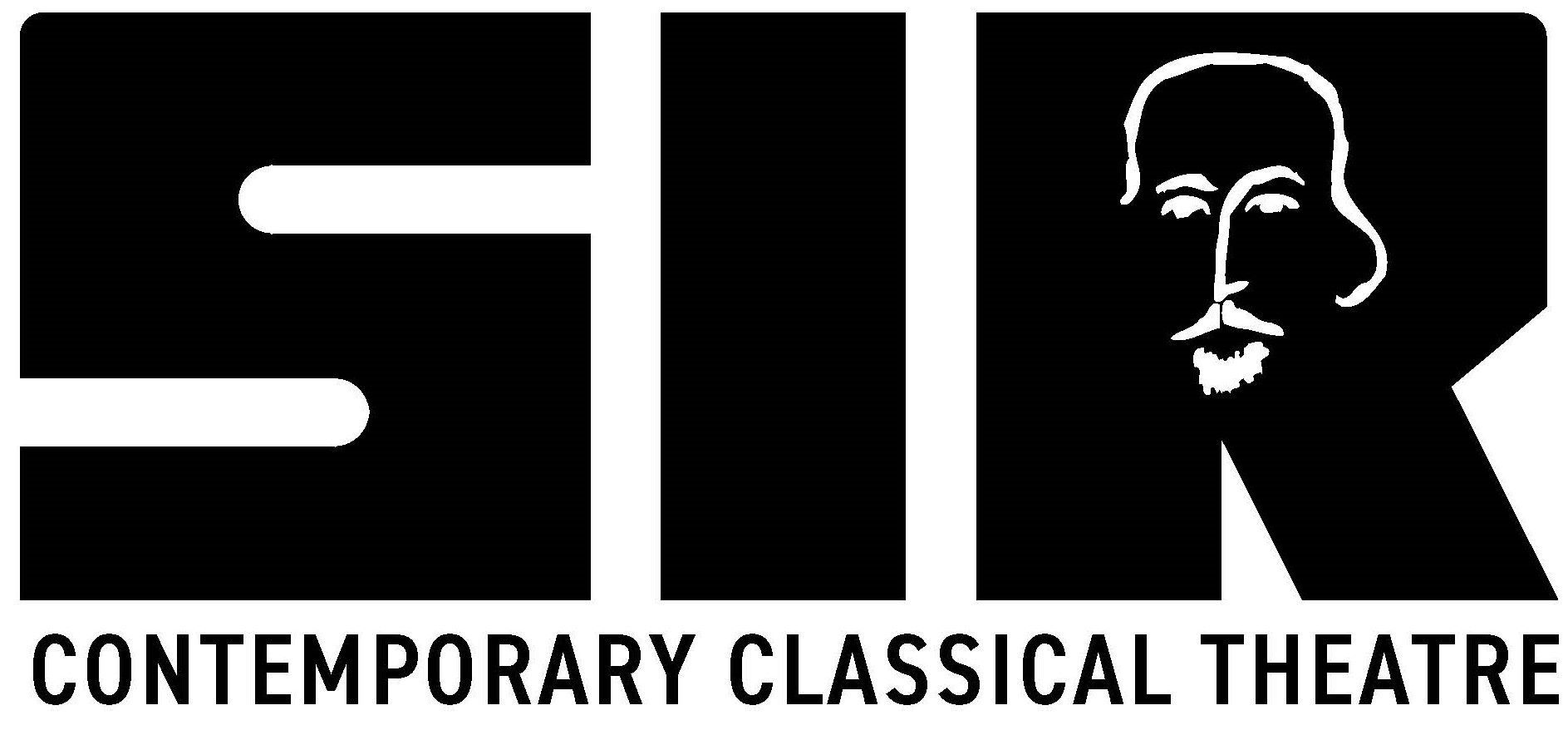November 30, 2025
Recently, I had the good fortune of sitting down with Arne MacPherson over coffee to talk about his work with Shakespeare in the Ruins. I first met Arne many moons ago when he was the instructor for a directing course I took at Prairie Theatre Exchange. Since then, he has been someone I deeply admire, a true pillar of Winnipeg’s theatre community whose legacy I greatly respect. As a founding member of Shakespeare in the Ruins and now a dedicated board member, Arne brings a wealth of experience and insight. That connection gave me the perfect opportunity to ask him about the origins of the company, his most memorable roles, and why it’s so important to protect what you love, especially when it comes to preserving unique cultural experiences for future generations. ***** Adam : As one of the founding members of Shakespeare in the Ruins, what inspired you to help create this company, and what does it mean to you today? That’s kind of two questions. Arne : Well, the legend goes, memory is selective and unreliable, but the story is that Lora Schroeder, Deb Patterson and I were out at an event at the Ruins in St. Norbert. I think it was Lora who had the idea: Wouldn’t it be great to do Romeo and Juliet here? That was the spark. The site had never been used for theatre before, and we thought, That’s a great idea. So, the first impulse was the site. The second was Shakespeare, specifically Romeo and Juliet. When we started planning, we decided to create a co-op so there was a sense of collective ownership. We stayed a co-op for over ten years until the organization grew, and we realized we needed a board of directors. Structurally, a co-op didn’t make sense anymore. So, we shifted to the structure we have now: an artistic director, a general manager, and a board. But at the beginning, there was a real ethic of collective effort. Those were the three impulses at the start. Today, I’m much less involved, mostly as an audience member for quite a while. For me now, it’s all about the site: doing theatre in that space. For example, this year I didn’t do Shakespeare, I did Waiting for Godot. I love that the company’s scale is friendly, the staff isn’t too big, and the personality of the company is easy to access. I really like that. I prefer it to working in big institutions. So, for me, it’s the size of the company and the place where we do it. Adam : So last season you performed Waiting for Godot. What was that experience like? And do you have any memorable roles over the years that stand out? Arne : Waiting for Godot was a hit, top three of my time at Shakespeare in the Ruins, maybe top three ever. The experience was incredible: the quality of the script, the company of actors, the direction, and the way the play worked in the ruins in a way you could never recreate in a traditional theatre. I’ve been lucky to play some of the great roles, Hamlet, Richard III way back in the late ’90s. Malvolio in Twelfth Night was big fun. Even lesser-known ones, like Don Armado in Love’s Labour’s Lost, were a blast. Adam : If you could revisit one role today and do it all over again, which would you choose? Arne : Oh, I wouldn’t play Richard III again, nobody who’s able-bodied should play that part. That was a thing of its time. Honestly, every production was what it was. Revisiting a role means revisiting the whole play with a different director, a different time, and a different world. I’m different now, physically. I wouldn’t want to play Hamlet again; Hamlet shouldn’t be a 60-something-year-old guy. So, I’m happy with all those experiences as they unfolded. Adam : If you could go back and talk to Arne, Lora, and Debbie when you started the company, what would be the most surprising thing about where Shakespeare in the Ruins is today? Arne : First of all, none of us would have imagined it lasting three years, let alone thirty-five. The fact that it exists and has become such an important part of Winnipeg’s cultural ecology is something we never could have predicted. I think it would surprise young Lora, Deb, and Arne that it’s not a co-op anymore. The company has grown into a very functional, efficient organization. Adam : And my last question: Why do you believe it’s important for the community to protect and support Shakespeare in the Ruins for future generations? Arne : All you have to do is talk to an audience member about how special the experience is. It’s unique. It’s like saying, we don’t need the Winnipeg Folk Festival because you can go to the Concert Hall. Sure, you can hear music elsewhere, but it’s not the same. Shakespeare in the Ruins offers an experience people cherish. If it disappeared, it would be a real loss. It’s the only theatre in Winnipeg that creates work outdoors, in the real environment. And beyond that, it’s in an incredible setting, with promenade staging. It’s unique, and people value it deeply. ***** After I stopped recording, Arne continued to share fascinating details about Shakespeare in the Ruins’ early days. For instance, after some productions, the company would serve food to the audience, a gesture that speaks to the intimacy and community spirit of those beginnings. He also told me that in the first few seasons, there wasn’t a full production team. There was just a stage manager, which meant the actors and team members themselves were responsible for laundering costumes, building props, and creating sets. One of my favorite stories was about the journeys audiences used to take during performances. In The Tempest, for example, the audience would walk down by the waters, swatting away mosquitoes, to encounter characters in unexpected places. Arne described how, instead of seeing Ferdinand chopping wood, audiences found him breaking boulders, a striking image that captures the immersive and adventurous nature of theatre in the ruins. These stories remind us that Shakespeare in the Ruins has always been about more than just theatre. It is about creativity, resilience, and a deep connection between artists, audiences, and the land. To keep that spirit alive, we must protect what you love, because experiences like this are rare, and losing them would be a true cultural loss. Adam Jennings , managing director SIR PS. PLEASE CONSIDER A DONATION , AND PROTECT WHAT YOU LOVE: YOUR SHAKESPEAREAN COMPANY, SIR!











